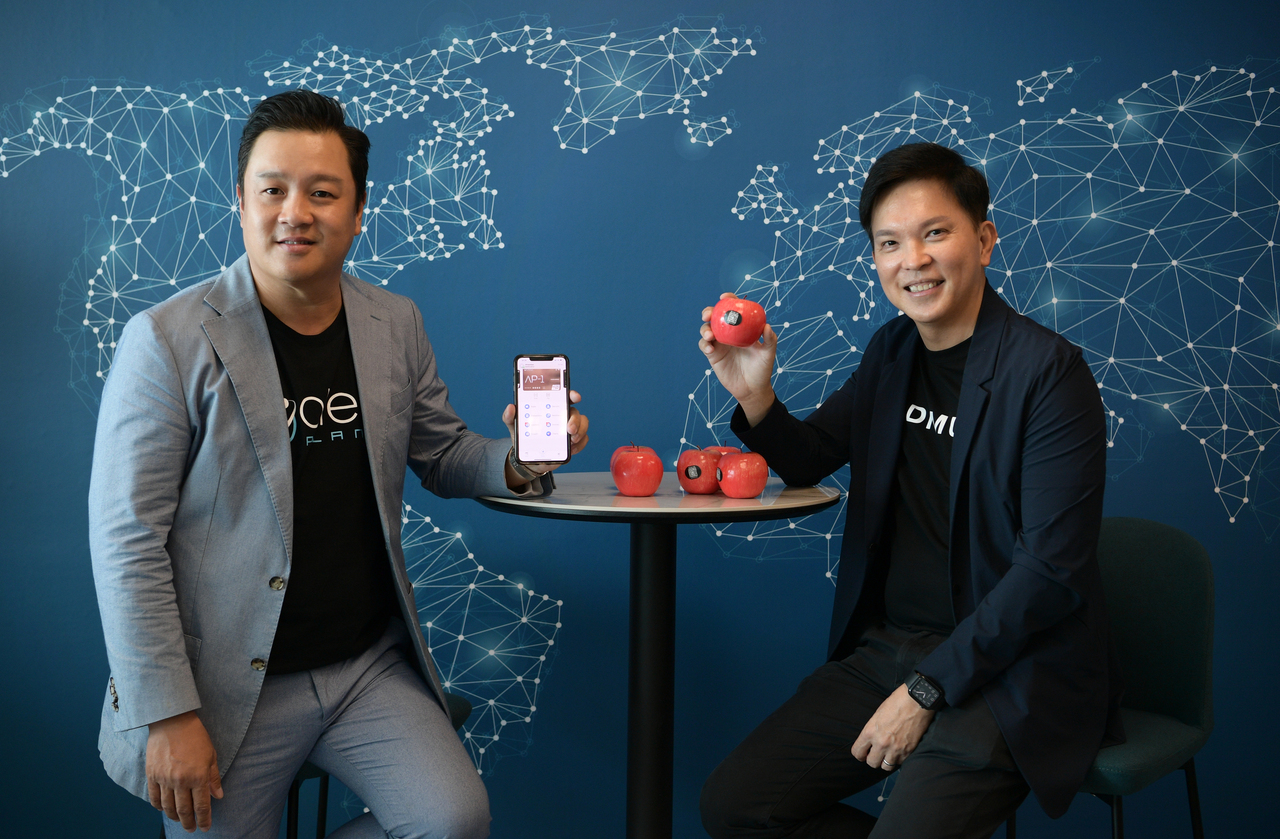Online grocery platform that makes supply chain process transparent on trial in S'pore
Sign up now: Get ST's newsletters delivered to your inbox

Mr Ryan Gwee (left), founder of Aleta Planet, and Mr Gary Loh, founder of DiMuto.
ST PHOTO: NG SOR LUAN
SINGAPORE - An online platform that helps suppliers and retailers confirm the condition of perishable produce such as fruit and vegetables, from the packing stage to the moment it reaches the consumer, is currently on trial at a supermarket chain here.
Digital Asset Creation - or Dacky, as the online grocery platform is called - was developed by home-grown agrifood solutions company DiMuto and fintech firm Aleta Planet and launched in 2020.
It is already used in 17 countries. The name of the supermarket was not given.
Dacky helps users identify each fruit carton by quick response (QR) labels and images of each one upon packing. Additional information, including which fertiliser was used, the destination country, farm location and packing time, can also be viewed when the cartons' QR labels are scanned.
Companies that have large supplies of fruit to trade can rent a machine that automates the process of labelling fruit cartons.
Retailers will be able to verify the quality of the fruit from images uploaded to the platform before the produce is packed, and receive advance warning of any delays in delivery.
The supplier, on the other hand, can see the produce when the carton is opened at the receiving end. They can also use these images to safeguard themselves against claims that they delivered damaged goods.
The journey of perishable produce from the packing facility to the retailer can be messy, with participants in the supply chain often lacking information that they need, said Mr Gary Loh, founder and chief executive officer of DiMuto.
"When farmers send their produce to be packed and distributed locally or overseas, the packers are not told where the cartons are headed... if the packers have the information, they can pack less ripe fruits in cartons headed to overseas markets," said Mr Loh.
He added: "Otherwise, by the time the produce reaches the supermarket, it is too late or too complicated to lodge a protest."
The United Nations Food and Agriculture Organisation estimates that 30 per cent to 40 per cent of total food production can be lost before it reaches the market, due to problems such as a lack of proper post-harvest storage, processing or transport facilities.
These losses can be as high as 40 per cent to 50 per cent for root crops, fruit and vegetables.
Suppliers also face problems with obtaining financing as perishable produce does not make good collateral, said Mr Ryan Gwee, founder and group chairman of Aleta Planet.
"Without high visibility of the packing and delivery process, and the documentation, it is difficult for banks to justify lending to suppliers in the global agrifood industry," said Mr Gwee.
Suppliers will be able to scale up their businesses assisted by the Dacky platform as Aleta Planet's parent company, Asia Capital Pioneers Group, will provide the financing to give suppliers 50 per cent to 70 per cent of their payment upfront.
They would usually have to wait an average of 60 days to receive payment as the buyer pays only upon receipt of the produce.
Suppliers can upload certificates on the platform to show if their produce is farmed sustainably, and by providing details such as the fertilisers or pesticides used during the farming process.
Supermarkets that adopt Dacky will have QR codes on their products that consumers can scan to find out where the produce was farmed and whether it was farmed sustainably, said Mr Loh.
"The platform, by providing this information, will make it easier for consumers to decide if they want to buy the produce," he added.


